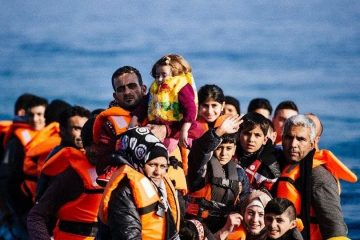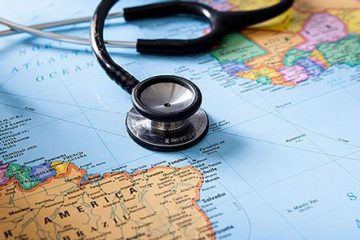Are the healthcare workers in refugee-hosting countries prepared for Non-communicable diseases? The case of Syrian population in Turkey.
The armed conflict in Syria since 2011 has forced the Syrian population to displace to other countries, being the largest refugee population in the world. Understanding a refugee as a person who has been forced to abandon their country due to war, political, religious, or social reasons. The main reason for this population displacement has its origins in the Arab Spring in December 2010, in which protests began against political corruption and which was followed by multiple conflicts in the society, ending in a civil war and creating internal and external population displacements.
The great amount of refugee Syrian population has challenged the infrastructure and sources of the healthcare Turkish system to assist a new health status profile for them while trying to provide the same healthcare services to the Turkish population. For that, training programs for the healthcare workers that incorporate non-communicable diseases (NCDs) prevention for these types of settings would be crucial.
Turkey’s imperfect welcome
Countries like Lebanon or Jordan have welcomed Syrian refugees, but Turkey has been the country that has received the biggest amount of them, being around 3,650,496 in June 2021. In Turkey, Syrian refugees are entitled to “temporary protection” – which means having basic social services, including healthcare services, and not being forced to return to their home country-. But regarding having access to healthcare, there can be several barriers for Syrian refugees to take advantage of it, such as language miscommunication or limited knowledge of the Turkish healthcare system.
The basic principles of the Turkish health care system are to provide equal, accessible and high-quality health care services to the population in order to reduce inequalities between social groups or urban and rural population. The Ministry of Health is the main provider of public health service and a social security institution was put in place on 2008being the private health insurances a small part of the healthcare expenditure. Primary Healthcare is free of charge, except for secondary level centres where co-payment is usual, and the Ministry of Health has collaborated with NGO to protect vulnerable populations such as homeless people, children and immigrants since 2015. His main goals have been the creation of preventive services to tackle maternal and child mortality, as well as reducing the burden of infectious diseases.
Regarding turkish healthcare workforce, it has been increasing since the beginning of the 2000’s but it’s still not enough in some categories such as nurses and midwives. Besides, there is no aparent standardization regarding the development of the continuous education of healthcare workers. These issues compromise the quality of the healthcare services for both the Turkish and refugee population.
Non-Communicable Diseases (NCDs) need to be tackled
From a global perspective, Non-Communicable Diseases suppose the 73% of deaths and, due to the success in tackling infectious diseases, are becoming the main cause of death globally. Lifestyle factors – like smoking, sedentarism or unbalanced diet – could lead to premature death due to Non-Communicable Diseases like hypertension (HTN) or diabetes mellitus (DM), which are public health threats worldwide. Non-communicable diseases (NCDs) – especially DM type II and HTN – are also the leading burden of disease for Syrians, causing 77% of the mortality. Therefore, Turkish healthcare professionals would need to receive specific training to have enough skills to assist the health necessities of Syrian refugees.
As it is now, the Turkish health system compromises the ability to give quality healthcare assistance to a new population with a different health profile like Syrian refugees. For those countries hosting refugee populations, the integration of a new framework in their healthcare system with a baseline profile of the NCDs is crucially needed. These actions would contribute to the achievement of SDG 3.4 of reducing to one third the premature mortality due to NCDs. For that, the Turkish Ministry of Health should design training programs for the healthcare workers that incorporate NCDs prevention as preparedness -not just being focused on the tackle of infectious diseases – for these types of settings. And in this case, having special attention to preventable diseases like DM and HTN -which suppose the 3,05% and 0,42% of the disability-adjusted life years (DALYs) – as the core Non-Communicable Diseases that have a greater influence on the mortality rate of the Syrian population.
The positive effects of creating focused training would be related to the workers, would be about gaining more confidence and skills to guarantee more appropriate and efficient assistance. And with that, increasing the organizational strength of the Turkish health system, as the hosting country, to face the increasing number of Syrian refugees.




1 Comment
José Pascual Amorós · March 26, 2022 at 12:49 pm
Es un gran trabajo muy bien expuesto y siempre pensando en el bienestar de lod más desfavorecidos, me alegro mucho de esta publicación espero tenga gran aceptación.